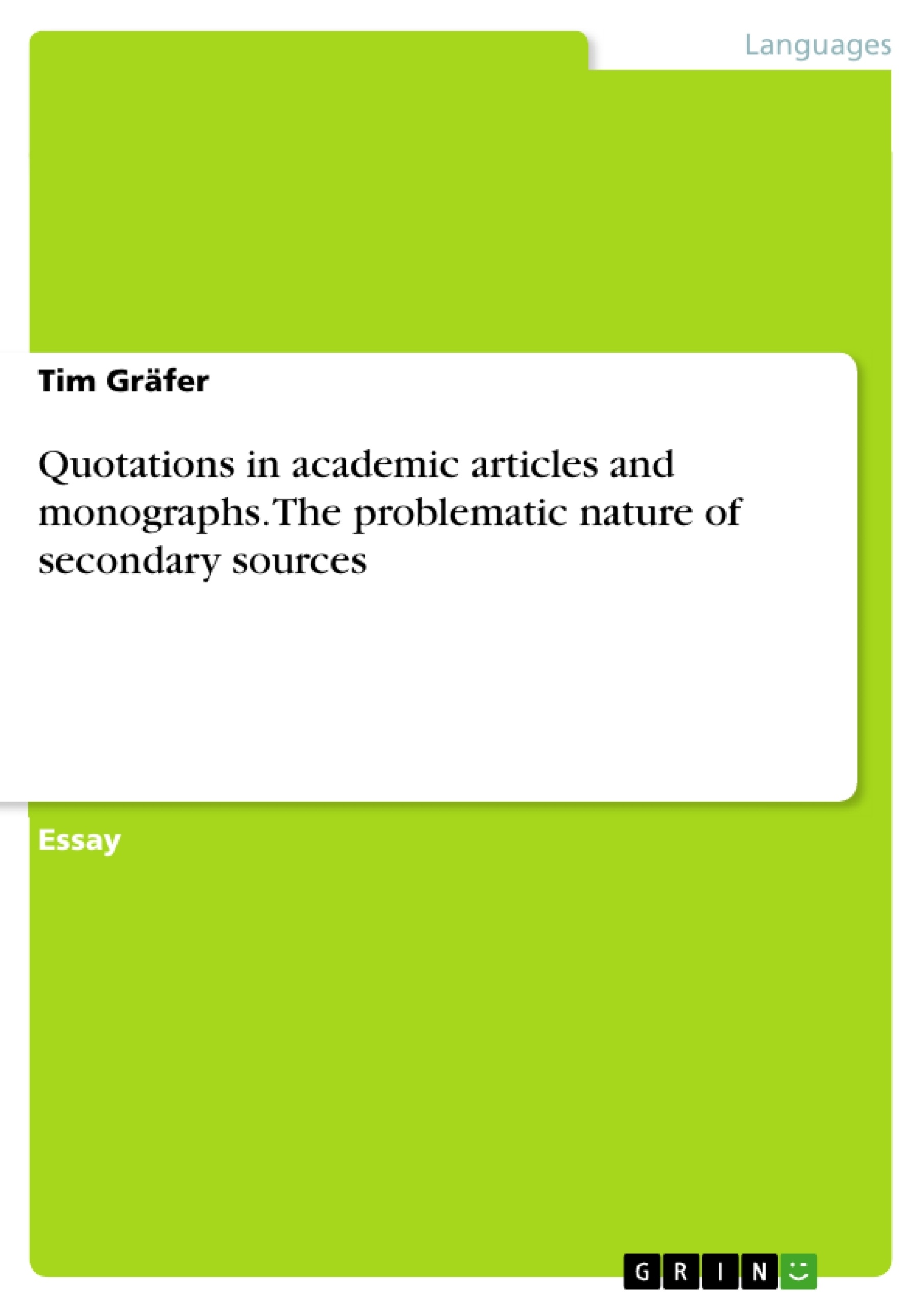Dieser Abstract beschäftigt sich mit der Frage, warum es im Rahmen von wissenschaftlichen Arbeiten insbesondere unter wissenschaftsethischen Gesichtspunkten wichtig ist, überwiegend mit Primär- und nicht mit Sekundärquellen zu arbeiten.
Inhaltsverzeichnis (Table of Contents)
- Abstract
- Introduction
- Definitions
- Academic ethic
- Business ethic
- Scientific/Academic Work
- Primary sources
- Secondary sources
- Analysis of problems that go along with the (solely) usage of secondary sources.
- Secondary sources in the context of academic work.
- Secondary sources regarding the function of quotes
- Secondary sources and intellectual work of other authors
- Secondary sources and the problem of correct academic content
- Correct usage of secondary sources
- The use of secondary sources in the context of the plagiarism of Anette Schavan
- Conclusion
- Sources
Zielsetzung und Themenschwerpunkte (Objectives and Key Themes)
This essay aims to address the question of why relying solely on secondary sources for quotations in academic articles and monographs is problematic from the standpoint of academic ethics in general and business ethics specifically. It explores the challenges associated with using secondary sources in academic work, highlighting the importance of direct engagement with primary sources.
- The ethical implications of relying solely on secondary sources in academic writing.
- The role of primary sources in ensuring academic integrity and originality.
- The importance of acknowledging the intellectual contributions of other authors through proper citation practices.
- The relationship between academic ethics and business ethics, particularly in the context of intellectual property and plagiarism.
- The impact of plagiarism on the reputation of academic institutions and individuals.
Zusammenfassung der Kapitel (Chapter Summaries)
This essay opens by outlining the problem of relying solely on secondary sources for quotations in academic writing. It then delves into the definitions of academic ethics, business ethics, and scientific/academic work, laying the foundation for the subsequent analysis. The essay discusses the various problems associated with the exclusive use of secondary sources, including the potential for misrepresentation of primary sources and the suppression of original research. It concludes by emphasizing the importance of utilizing primary sources to ensure academic integrity and promote responsible scholarship.
Schlüsselwörter (Keywords)
This essay focuses on the key concepts of academic ethics, business ethics, primary sources, secondary sources, plagiarism, and the importance of academic integrity. The analysis delves into the ethical implications of using secondary sources in academic work, highlighting the significance of responsible scholarship and intellectual honesty.
Frequently Asked Questions
Why is it important to use primary sources in academic work?
Primary sources ensure academic integrity, originality, and direct engagement with the original research, which is essential from an ethical standpoint.
What are the risks of relying solely on secondary sources?
Relying on secondary sources can lead to misrepresentation of the original content and the suppression of original research and intellectual work.
How does this topic relate to the Anette Schavan plagiarism case?
The essay uses the Schavan case as an example of how improper citation and reliance on secondary sources can lead to plagiarism and loss of reputation.
What is the difference between academic ethics and business ethics in this context?
Academic ethics focus on integrity and honesty in research, while business ethics in this context often relate to intellectual property and professional conduct.
When is it acceptable to use secondary sources?
The text discusses the "correct usage" of secondary sources, typically when primary sources are unavailable or for providing context to existing interpretations.
- Arbeit zitieren
- Tim Gräfer (Autor:in), 2015, Quotations in academic articles and monographs. The problematic nature of secondary sources, München, GRIN Verlag, https://www.grin.com/document/334439



